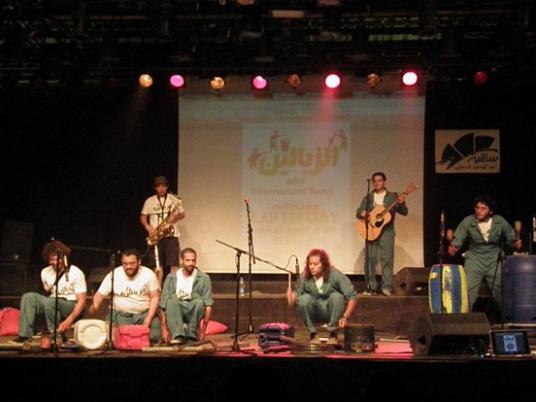Sunday marked a day of global environmental activism as 350.org, an international campaign to solve the climate crisis, held its highly publicized Global Work Party. The event aimed to send a strong message to world leaders that civic environmental engagement is the necessary way forward to confront the impending crisis.
In the words of 350.org founder, Bill McKibben, “Since we've already worked hard to call, email, petition, and protest to get politicians to move, and they haven't moved fast enough, now it's time to show that we really do have the tools we need to get serious about the climate crisis." He added, "In the same year when global temperatures have set one scary new record after another, we are rewriting the record books for civic engagement.”
Following last year’s Global Day of Action–which witnessed 5200 demonstrations in 181 countries in what CNN called “the most widespread day of political action in the planet’s history”–this year the organizers hoped to top that. And that they did. In 188 countries, 7347 events were held. Only four countries were absent from the festivities: North Korea, Andorra, Equatorial Guinea, and San Marino.
Events ranged from a giant bike repair day that sought to get every bicycle in Auckland, New Zealand, back on the road, to installing solar panels at the president’s office in the Maldives. In Kampala, Ugandan participants planted thousands of trees, while Bolivian activists provided solar stoves for a massive carbon neutral picnic.
Through these events and projects, participants looked to persuade political leaders that the public is adamantly committed to addressing climate issues and thus exhort the power-wielders to adopt more influential policy.
Sunday served as an example of citizen action in the face of political inertia evidenced by deadlock in the ongoing, Chinese-hosted climate negotiations.
Egypt held its main Global Work Party event on 1 October with the Cycle for Change day held at the Smart Village.
In similar fashion, the main aim was to raise awareness of the power of the individual and of the long-term impact of small, albeit aggregate, action. With that in mind, NGOs such as Wadi Environmental Science Center and Spirit of Youth distributed pamphlets to Cycle for Change attendees giving them simple ideas to change certain habits in an effort to embrace a more environmentally sound lifestyle. According to organizer Ayman al-Sayyed, “in this way people can feel proactive and start the wheel for change.”
Sunday, Cairo also hosted an exhibition of pictures taken at the Cycle for Change event held earlier in the month. The gallery was organized by the environmental arm of the NGO Nahdet al-Mahrousa.
As for the future of environmental activism in Egypt and the potential for similar events to gain more attention, al-Sayyed is optimistic. “People who are supportive of the environmental cause are increasing," he said. "Whereas before we would hear people ridiculing those riding bicycles in Cairo for example, today many people approach us, intrigued to know the reasons behind why we use these a mode of transport.”
But we should remain cautiously optimistic, since the number of environmental activists in Egypt remains, unfortunately, scant. Al-Sayed, however, is defiantly hopeful that support for the environmental movement will grow as understanding of the consequences of inaction builds. Let’s hope this day of enlightenment is soon.


